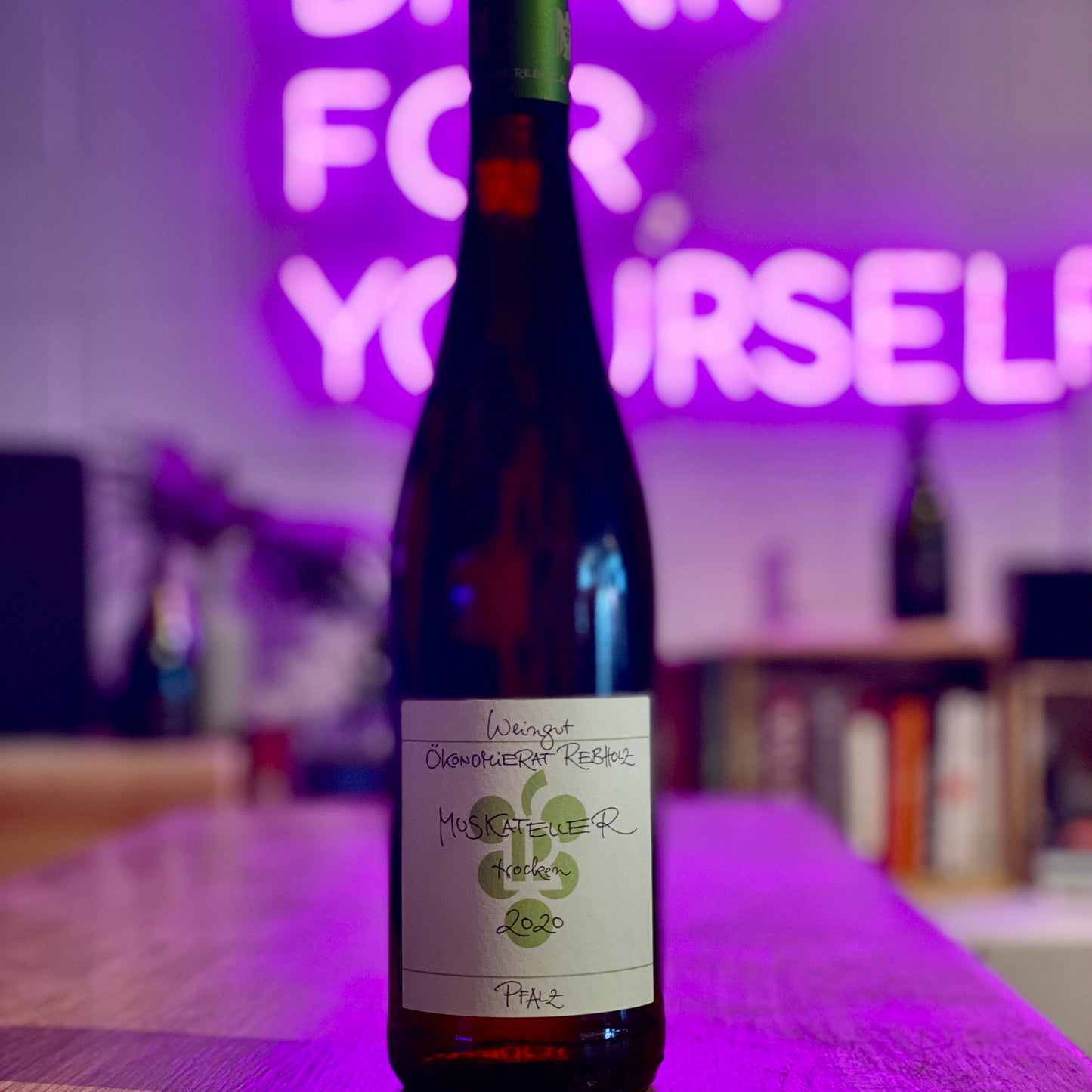This store requires javascript to be enabled for some features to work correctly.
Save 10% on orders of 12+ Bottles of Wine!
- Winemaker - Hansjörg, Valentin & Johannes Rebholz
- Vineyards/Terroir - Red Sandstone
- Farming - Biodynamic
- Varieties - Muskateller
- Vinification: 24 hours of skin-contact maceration before crushing, fermented and aged in stainless steel.
- Tasting Notes: With bergamot and fresh herbs this Muskateller has an elegant, pleasant, not overwhelming nose. In the mouth a never ending length and perfect spiciness. Its dry taste ʹtypical for Rebholz ʹ makes it a perfect match with Asian and Mediterranean kitchen or as an appetizer. Light and fresh, with decent acidity and a contained bouquet which is never overload. Always easy to enjoy a second glass of this delicate Muskateller
2023 Bottle of the Month Club Notes:
Rebholz is a renowned winery in the Pfalz region of Southwestern Germany, nestled along the fringes of the Palatinate forests and adjacent to the border of Alsace, France. The winery is celebrated for its unwavering commitment to crafting high-quality wines that authentically convey the terroir of the Pfalz. Across generations, the Rebholz family has been deeply engaged in winemaking, and their fusion of tradition and innovation has established them as respected figures in the world of wine.
The lineage of winegrowing within the Rebholz family in Siebeldingen traces its origins back to 1632. Over time, family members have embraced diverse roles, ranging from beer brewing to village leadership. Yet, a consistent thread has been the presence of at least one family member dedicated to the art of winemaking. Nearly a century ago, the Rebholz family established their roots in a 16th-century estate house, solidifying their enduring connection with the community. For years, the Rebholz family supplied entire barrels of wine to local inns and restaurants; however, the practice of bottling and selling beyond their region only commenced after the Second World War.
Today's generation is led by Birgit and Hansjörg Rebholz, in collaboration with their children Hans, Valentin, and Helene. Since 2006, they have farmed their 22 hectares of vineyards biodynamically, prioritizing a thriving ecosystem and vibrant soils. As a result, the use of herbicides, synthetic fungicides, and mineral fertilizers is prohibited. This commitment to sustainability has been woven into the family's legacy for generations. Eduard Rebholz, who earned the title Ökonomierat—an honorary distinction for meritorious agriculturists—reflected on his natural approach, stating, “you will receive only natural wine from my cellar, a product of meticulous and affectionate vine cultivation, following vinicultural methods that shun chaptalization and artificial additives like süssreserve [sugar]. Such alterations compromise the wine's innate character and, in my view, remove its natural essence.”
While Rebholz is celebrated for their exquisitely dry Riesling and Pinot Noir, their portfolio also encompasses plantings of Pinot Gris, Sauvignon Blanc, and the grapes that shape this wine: Muskateller, also known as Muscat Blanc à Petits Grains. This variety, the noblest and oldest within the Muscat family, grows in tight clusters of small berries. Adored since its emergence in ancient Greece, Muscat Blanc can be vinified to yield bone-dry or lusciously sweet styles. You might recognize it by various names such as Muscat Canelli, Muscat d'Alsace, Muscat de Frontignon, or Moscato d'Asti. Despite its highly aromatic nature, the palate encounters a bone-dry profile with minimal residual sugar. All the fruit is meticulously handpicked from small parcels rooted in well-draining red sandstone. After 24 hours of skin maceration, the natural fermentation takes place in stainless steel tanks.
The Muskateller exhibits a light body, accompanied by an intricate bouquet that interweaves notes of jasmine, kumquat, Thai basil, musk, and lychee. This wine is perfect for warm days or paired with aromatic dishes like Burmese tea leaf salad, lemongrass pork banh mi, or a mezze platter featuring hummus, tzatziki, tabouleh, and dolma. — Cara Patricia, August 2023

